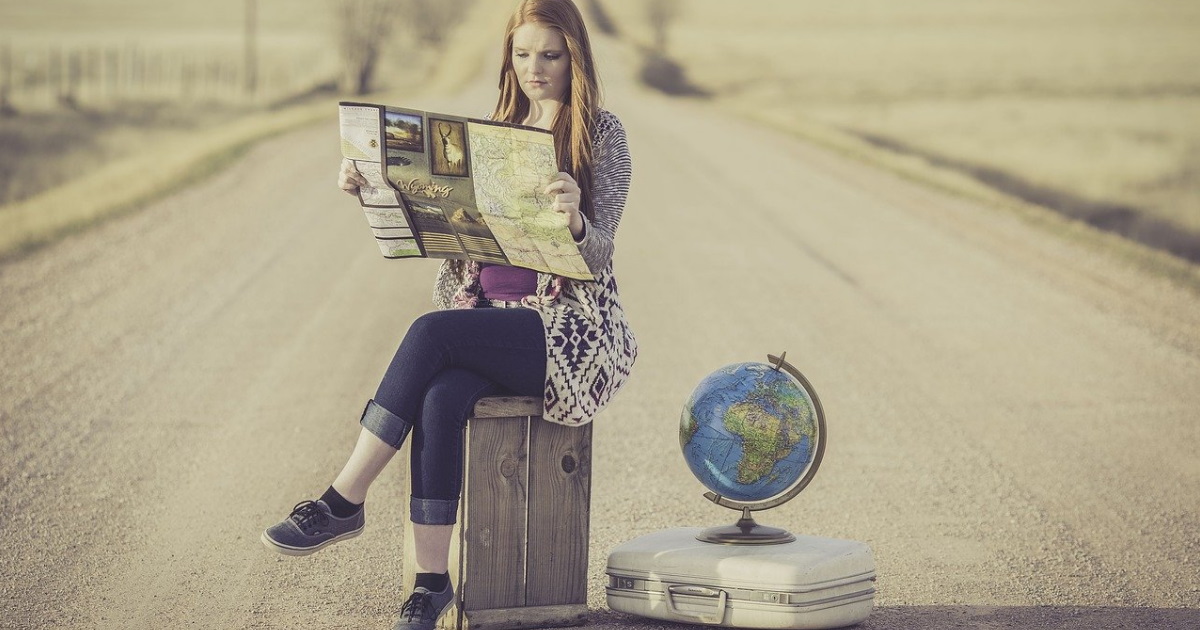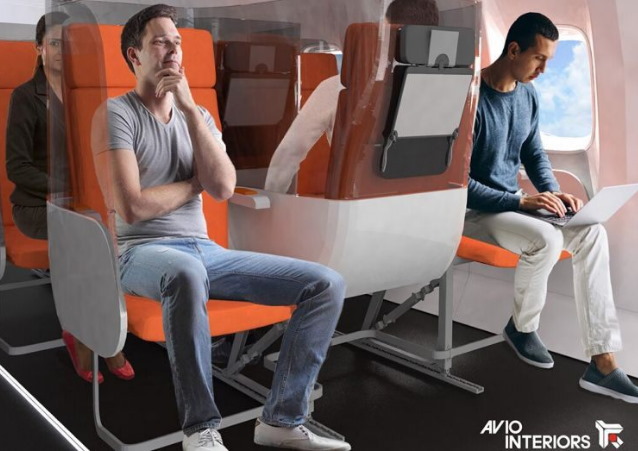
Tourism & hospitality in the Vendée: surviving the immediate future
We have been asked to share our thoughts about whether or not there will be tourism in the Vendée this season. To address this, means we feel it important to address tourism & hospitality in general, as that will inevitably affect what happens in our department. The following are musings and logical thinking as having lived - and survived - 9/11 working for a major airline and related hotel industry, applying the gravity of a pandemic and its possible repercussions.
1/Is Covid-19 here to stay?
The answer to this question seems quite logical: as long as the disease spreads and without a vaccine to inoculate the masses, yes, unfortunately Covid-19 is a long-term global health crisis we'll have to deal with or work around. If we reach back to 9/11/2001, the world came to a standstill in the wake of a shocking terrorism attack that delivered a gut-punch to air travel and tourism. On a global scale, people were scared to travel. We dealt with mass-cancellations and needed to keep airplanes on the ground as it was too expensive to operate them. Airlines and hotel chains went bankrupt. Many jobs across the spectrum of the tourism industry were lost. It was a bitter pill to swallow. We learned that we were all in it together and that in order for the industry to survive, we needed to rethink our business and above all, to be flexible. In the midst of a continued global health crisis, business as usual is quite unthinkable and improbable.
2/ What will be the government guidelines for tourism and hospitality sectors?
Tourism is so important in our country - really everywhere, but France especially thrives on it. The key statistics reported by the French Ministry for Europe and Foreign Affairs show that:
- France continues to be the world’s most popular travel destination (ahead of the United States and China) with no less than 89.4 million foreign visitors in 2018.
- This accounted for about 8% of the GDP (Gross Domestic Product), or €56.2 billion in revenue and creating two million jobs.
- The 2020 goal set by the French Government was to attract 100 million international tourists with €50 billion in revenue which clearly indicates that the country was well on its way towards reaching that goal in terms of visitors, and had in fact exceeded that revenue target already in 2018
The latest available statistics for tourism in the Vendée (reported by Vendee Expansion 31st December 2019)
- The Vendée holds the most number of campgrounds in France
- Between hotels, campings, chambres d'hôtes, and gîtes (holiday homes), the Vendée has a capacity of nearly 760 000 beds available.
- Between 2018 and 2019 there was an increase of 1.5% of tourist accommodations in the department.
We already know that the external Schengen borders will remain closed for the time being but per the French Prime Minister Edouard Philippe (on 22/4/2020) movement between regions will be allowed after May 11th and there will be a gradual lifting of travel restrictions by mid-June. That bars and restaurants might open on June 15th is so far unconfirmed but more information is expected in the coming days.
How the "practical" future of travel and hospitality will be addressed remains to be seen. It is a given that behind the scenes the government in collaboration with the leaders of all regions are working hard to create a strict set of guidelines for businesses in the tourism and hospitality industry to follow.
It is doubtful that international travel or even travel within the Schengen borders will be restored any time soon. In fact, it is being reported that travel will be restricted to in-country only. But, regardless of this, we feel that the bigger question-mark lies with the consumer and traveller themselves. After the government's botched handling of the situation to begin with, and in ensuring their own safety and that of their families, the real challenge for businesses will be to gain the customer's confidence.
It's probably safe to say that after a long, rainy winter season followed almost immediately by six weeks of confinement people will have a desire to travel, to go to a bar or to have a nice dinner out. These activities are an integral part of our lives! Which doesn't mean they will be eager to pile into the car quite immediately. We will want to travel, and eat out, but we will be cautious.
In the next points we think through some ideas for what the future of the travel and hospitality sector might look like through government guidelines, and/or how the small business owner could keep their service alive while boosting the traveller's moral and peace of mind.
3/ addressing employee safety
In both the tourism and hospitality sectors, employee safety will be a top priority.
- work schedules - perhaps in shifts?
- assess general health of the employee - by body temperature scanning?
- hygiene - providing a disinfected work environment with necessary equipment such as hand gels, soap, products, masks and gloves AND a rigorous ritual for sanitizing.
- assign and restrict specific job descriptions to reduce confusion and contamination
- staff training is key
- put controls in place to ensure protocols
Regardless of government guidelines or personal opinion, the key will first and foremost be to give guests and customers peace of mind, and even some measure of control.
4/ addressing guest and customer safety concerns
Providing a different type of customer service will be THE challenge of 2020 and for as long as there is no vaccine to the virus. The World Health Organization predicts the virus is here for the foreseeable future. So, from a customer service point of view everything will center on personal safety, sacrifice for the greater good, and becoming fairly at ease with the new status quo. Whatever it is our small businesses decide to implement in addition to government guidelines to ensure health and safety, we highly recommend talking about it on social media, even demonstrating it with images and video. Business proprietors in travel and hospitality will do good to find an even higher standard than they are already applying. The following are mere musings and thoughts - a lot of the protocols you can put into place will be depending on your type of business e.g. in an accommodations business, there may need to be a check-in time by appointment to respect social distancing measures; or work with a key-box for gites to minimise contact. One thing is clear: a swimming pool may not be your top attraction this year!
Restaurants/bars, in addition to providing gels
- reduce the number of tables and chairs available
- allowing family groups only
- work with multiple lunch or dinner services daily and allow walk-ins only when possible
- expand outdoor serving space IF possible, perhaps working with local mairie
- limiting menu for faster service
- adding takeaway service where possible to make up for reduced number of tables in-house
- understanding sanitation before, during and after service e.g. restrooms will need looking after on a strict schedule or after each use (which is why staff rotation, shift work, and restricting job descriptions might be a smart approach)
- could also ask patrons to disinfect before and after use OR to at least keep materials/products available to give them control over the situation in the loo
Don't wait until lock-down is over to win the trust of future or returning guests and customers. Do it now!
Tourist accommodations
- Campings
- create extra space between campers by reducing the number of camper vans
- if renting caravans or cabins, what we do know about the virus can be used to gain additional control e.g. leave a number of days between check-in and check-out, letting/renting the accommodations on a rotation. In addition to being thoroughly cleaned, any remaining virus would have time to die naturally.
- shower block/ washing machine use on a schedule would ensure time to disinfect the area after each use
- here too it would help to have staff working specific jobs and in shifts
- Chambres d'hôtes or Bed & Breakfast
- no buffet
- breakfast rotation schedule by reservation
- rather than a community table, provide extra space
- deliver breakfast to the rooms (to reduce expense have a form to ask what they want rather than providing everything)
- keep cleaning products for guests to take control over cleanliness and hygiene if that makes them feel better
- for staff safety, provide cotton bags for guests to strip beds upon departure - cotton can be washed
- increase turnaround time to allow ample time
- Gîtes - holiday cottages
- we expect holiday cottages where families can be away from others will likely see an increase in bookings
- keep materials/products available for guests to take control over cleanliness and hygiene if they wish
- demand beds and bathrooms be stripped of linens and towels and at least a first load be put to wash at an appropriate, pre-determined setting before departure
- key-boxes rather than key pick-up from the owner
The most prudent action to take in addition to reassuring the customer, is to prepare for a late season and winter travel sooner rather than later e.g. by offering special travel packages and discounts.
4/ Is this the future of Air Travel?
We want to thank the Italian company Avio Interiors for giving us permission and sending us these images to use in our article. Their ideas to ensure the continuation of air travel are brilliant, in our opinion, as long as the airlines as well as airport authorities do their part for hygiene. Perhaps this should have been implemented a long time ago? One thing seems quite clear: given the disastrous situations in the large cities across the globe (and let's loop cruiseships into this as well), the beautiful countryside will be more attractive as a destination - possibly even more so than was already predicted in 2020 Travel Trends. This will create an opportune time to attract long-distance visitors to the Vendée. (for our conclusion, please keep reading below images)


IN CONCLUSION
The Vendée represents an integral part of overall French tourism, as well as the most number of accommodations up and down the Atlantic coast of France. People, once allowed, will be determined to travel. Regardless of your personal beliefs about the virus, they will show up. Businesses operating large hotels, such as our beloved Le Puy du Fou, may feel the sting of Covid-19 the most, but perhaps they can work with local small business to handle any overflow, just like airlines re-route passengers on other carriers sometimes. This would help everybody and show great solidarity with the community of the Vendée. And there are probably other things that can be done that we haven't even considered.
Above all we must not lose sight of the fact that we are all in this together. In the aftermath of 9/11, there was a great sense of survival in the long-term over profit in the short-term, of solidarity over self. It continues to be an experience we can draw from, simply because together, we survived and we thrived again. We must be patient, lift our heads up, and keep going.
If you have more ideas about how you will maintain vigilance against the spreading of Coronavirus in your small business, please do share them in the comments on our Facebook page or in our private Facebook group. In the spirit of solidarity, we continue to offer our support for Vendéen small business. If you would like to work with us, please let us know. We are happy to offer you space and time to highlight your business on inthevendee.com!
Sources: aviointeriors, Vendée Expansion statistical reports. France24English
Share this Post
